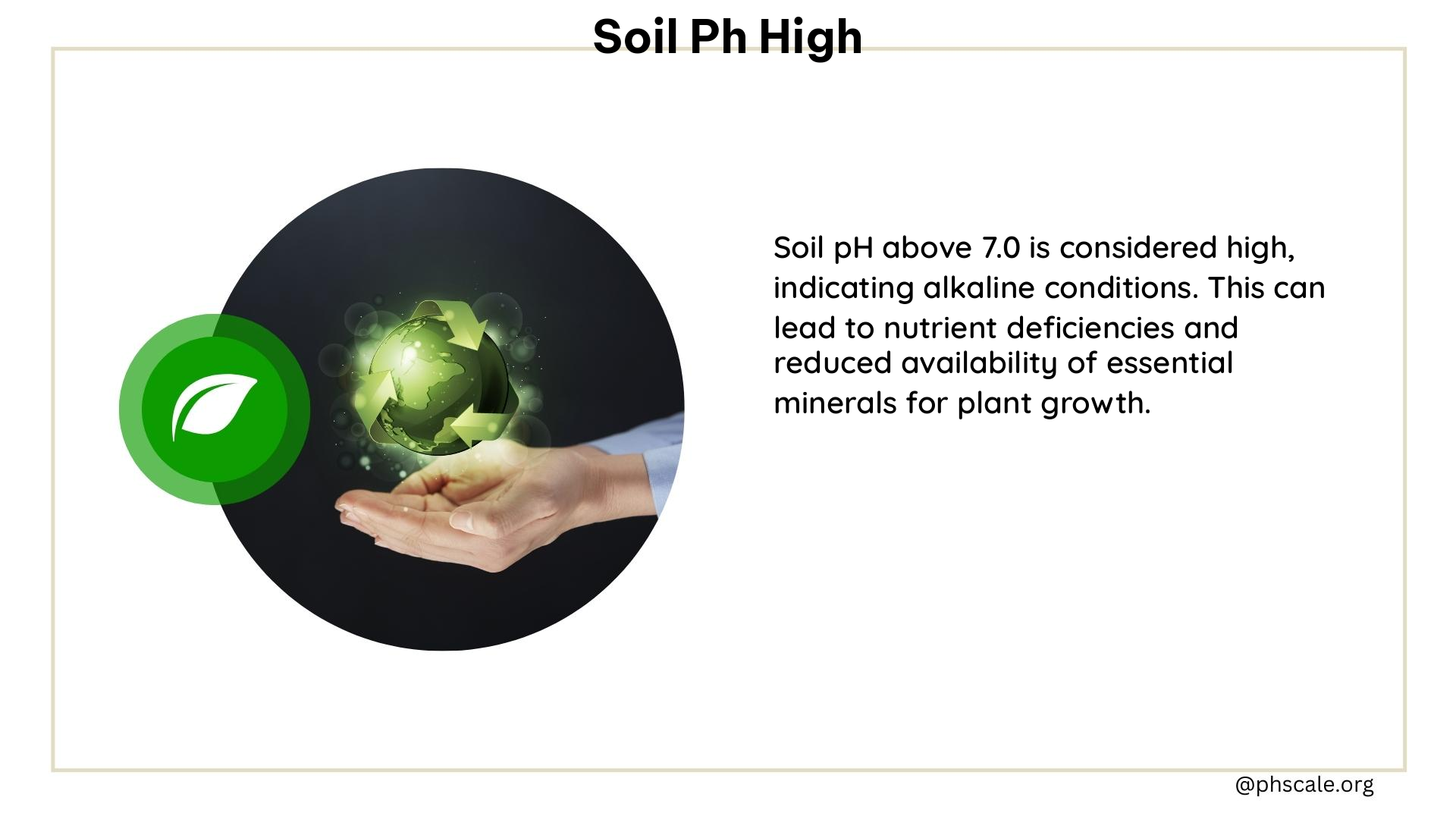Soil pH is a crucial factor in plant growth and nutrient availability. When soil pH levels are too high, it can lead to a range of problems for gardeners and farmers. In this comprehensive guide, we’ll explore the causes, consequences, and effective solutions for managing high soil pH.
Understanding Soil pH
Soil pH is a measure of the acidity or alkalinity of the soil, ranging from 0 (most acidic) to 14 (most alkaline). A neutral pH is 7. Most plants thrive in slightly acidic to neutral soils, with a pH between 6.0 and 7.2.
Causes of High Soil pH

High soil pH can be caused by several factors:
- Over-liming: Excessive application of lime can lead to alkaline soils.
- Calcium carbonate-rich parent material: In arid or dry environments, the underlying geology can contribute to high pH levels.
- Excess compost: Composted manure and other organic matter can increase the pH due to the build-up of base cations.
- High tunnels: The lack of rainwater in high tunnel environments can cause pH levels to rise over time.
Problems Associated with High Soil pH
High soil pH can lead to several problems for plant growth and nutrient availability:
- Nutrient deficiencies: At high pH levels, the availability of essential nutrients like iron, zinc, copper, and manganese is reduced.
- Phosphate limitation: Phosphate, a macronutrient, may be limited due to precipitation in the soil solution.
- Iron chlorosis: This common problem in alkaline soils is caused by inadequate iron availability.
Treatment of High Soil pH
To lower the pH of alkaline soils, several methods can be used:
- Elemental sulfur: Adding sulfur can form sulfuric acid, which lowers the pH.
- Iron and aluminum compounds: These can be added to release hydrogen ions, reducing the pH.
- Organic matter: As microbes decompose organic matter, they release CO2 and form carbonic acid, lowering the pH.
- Acidifying fertilizers: Ammonium sulfate and other acidifying fertilizers can help lower the pH.
- Sulfuric acid: This can be added directly to lower the pH.
- Gypsum or sulfuric acid: These can be used to remediate sodic soils with high sodium levels.
Managing High Soil pH
To effectively manage high soil pH, consider the following strategies:
- Conduct annual soil tests: Regular soil testing will help you track pH levels and make necessary adjustments.
- Choose pH-tolerant plants: Select plants that can thrive in high pH conditions, such as asparagus, beets, cabbage, and carrots.
- Acidify irrigation water: Add phosphoric, sulfuric, or nitric acid to maintain a pH between 5 and 7.
Additional Considerations
- Soil pH affects the activity of beneficial microorganisms, which are essential for decomposing organic matter and making nutrients available to plants.
- High soil pH can lead to plant poisoning due to the availability of toxic levels of certain nutrients like manganese and aluminum.
Helpful Resources
For more information on soil pH and its management, refer to the following resources:
- Understanding Soil pH: Here’s What Every Gardener Needs to Know
- Solutions to Soil Problems: High pH
- Does your soil have a high pH? Fall is the best time to amend it.
By understanding the causes, consequences, and effective solutions for managing high soil pH, you can create a thriving garden or farm that maximizes plant growth and nutrient availability.
